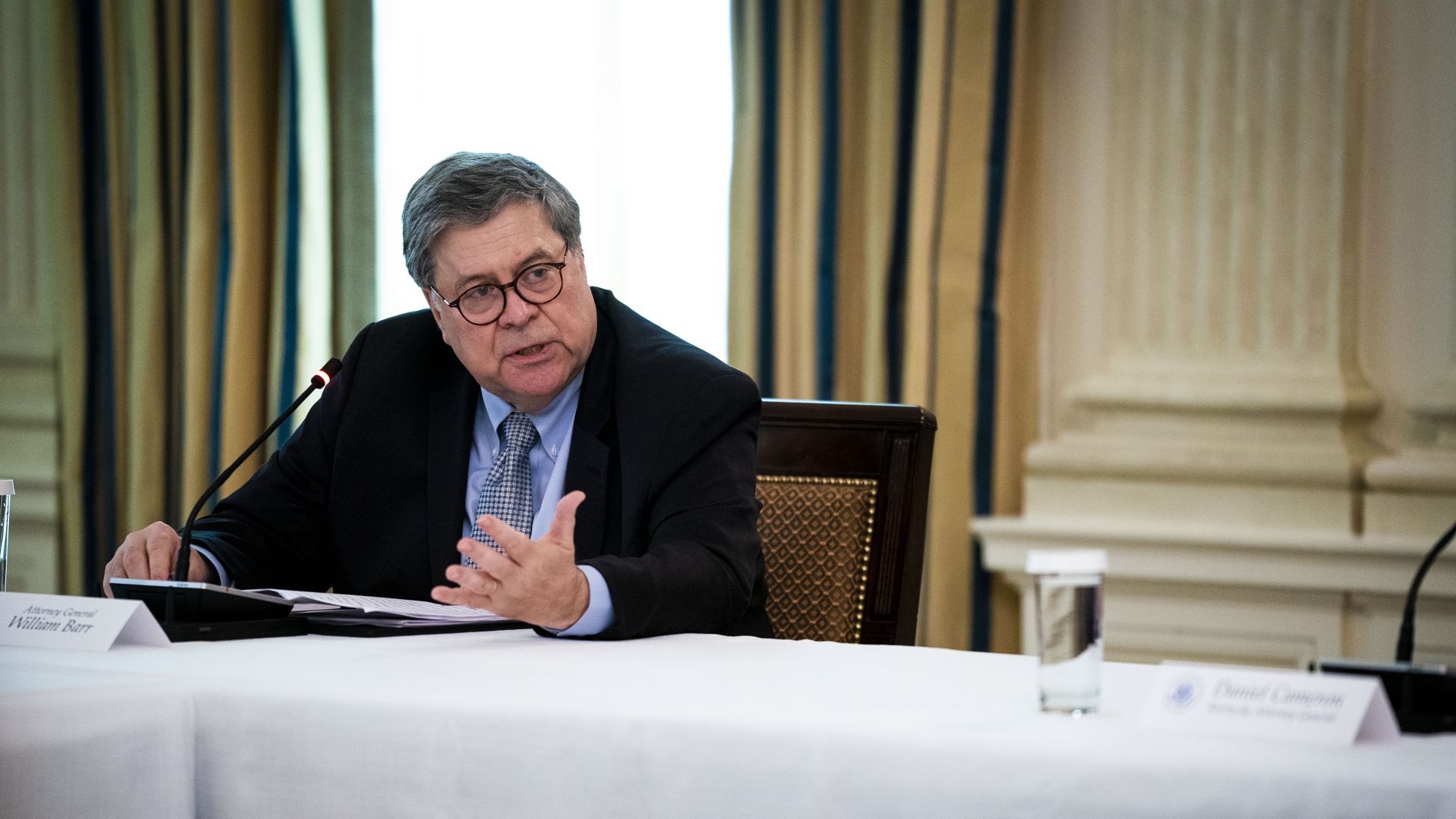Justice Department reveals proposals to curb platforms' protections
Add Axios as your preferred source to
see more of our stories on Google.

Attorney General Bill Barr. Photo: Doug Mills-Pool/Getty Images.
The Justice Department is urging Congress to limit the legal protections enjoyed by online platforms, seeking to narrow the law so they shoulder more responsibility for what appears on their websites.
Why it matters: The DOJ's move is the latest in escalating attacks by lawmakers and the Trump administration on the law that gives websites protection from liability over content their users post.
Driving the news: The Justice Department on Wednesday issued a proposal that would see Congress lay down more rules around how platforms can moderate content on their websites, and open them up to additional liability. The changes the DOJ envisions going into legislation include:
- Losing legal protections if websites purposefully facilitate or solicit third-party content that violates federal law, so that people affected by such a violation could sue the platform.
- Limit immunity for content moderation decisions to those done in "good faith," meaning liability protection would only apply to moderation that fits with the platform's terms of service and with a reasonable explanation. Under such a change, platforms could be sued if they, for instance, take down content or ban an account that didn't break their rules.
- Reining in tech's ability to moderate content by removing a provision from the law that allows them to remove material they consider "otherwise objectionable," above and beyond more specific criteria for problematic content. The DOJ suggests replacing that with "unlawful" and "promotes terrorism."
Background: Section 230 of the Communications Decency Act in part gives platforms the ability to remove content they believe is "obscene, lewd, lascivious, filthy, excessively violent, harassing or otherwise objectionable."
- Deputy Attorney General Jeffrey Rosen questioned the "blank check" the provision provides platforms to remove content, and suggested it be reconsidered during a speech in March.
- The Justice Department also gathered policy experts to discuss the law at a workshop in February.
- Both Republicans and Democrats have eyed changes to Section 230 to address their frustrations with big tech companies.
